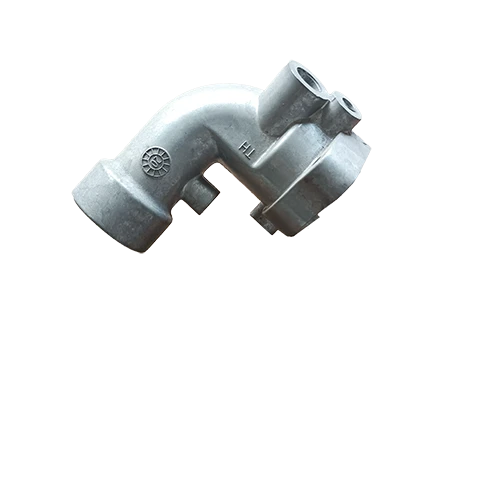Mobile:+86-311-808-126-83
Email:info@ydcastings.com
chiller impeller
Understanding Chiller Impellers The Heart of Efficient Refrigeration
In the world of HVAC (Heating, Ventilation, and Air Conditioning), chillers play a crucial role in maintaining comfort and efficiency. Among the various components that make up a chiller, the impeller stands out as a critical part that directly influences the performance and reliability of the system. This article will delve into the functions, designs, and importance of chiller impellers, shedding light on their pivotal contribution to energy efficiency and system effectiveness.
What is a Chiller Impeller?
A chiller impeller is a rotating component of a centrifugal chiller that helps to increase the pressure and flow of the refrigerant. This is achieved by converting rotational energy from the motor into kinetic energy and then into pressure energy. Essentially, the impeller creates a series of vortices that draw the refrigerant into the chiller and propel it through the system. The design and material of the impeller can significantly affect the overall efficiency of the chiller.
The Role of Impellers in Cooling Systems
The primary function of the chiller impeller is to facilitate the circulation of refrigerant within the chiller unit. By compressing and pushing the refrigerant through the evaporator and condenser, impellers enable the vital heat exchange processes that cool the air or liquid circulating within HVAC systems. Efficient impeller designs ensure minimal energy loss while maximizing heat transfer rates, thereby enhancing the overall performance of the chiller.
Design Considerations
When it comes to designing an effective chiller impeller, several key factors must be considered
1. Material The choice of material is paramount, as it needs to withstand the pressures and temperatures within the system. Common materials include stainless steel and high-strength polymers, which offer durability and resistance to corrosion.
2. Shape and Size The geometry of the impeller is critical for determining how efficiently it can move the refrigerant. Designs can vary from single-stage to multi-stage impellers, with each configuration suitable for different applications. Multi-stage impellers are often used when higher pressure is required.
chiller impeller

3. Blade Design The shape and angle of the blades on the impeller influence the flow characteristics of the refrigerant. Optimal blade design promotes smooth flow, reduced turbulence, and improved energy efficiency.
4. Balance Ensuring that the impeller is well-balanced is crucial to reduce vibrations and wear on the bearing systems, ultimately prolonging the life of the chiller.
The Impact on Energy Efficiency
The efficiency of a chiller impeller has a direct correlation with the overall energy consumption of an HVAC system. High-efficiency impeller designs can lead to significant reductions in operating costs by minimizing the energy required to circulate the refrigerant. This is particularly important in commercial buildings where HVAC systems are responsible for a substantial portion of energy use.
Furthermore, selecting the right impeller can contribute to better performance under varying load conditions. Smart chiller systems can adjust the speed of the impeller in response to changing cooling demands, leading to even greater efficiency and reduced strain on the system.
Maintenance and Longevity
Regular maintenance of the chiller impeller is essential for ensuring its long-term performance. This includes checking for signs of wear, ensuring proper lubrication, and addressing any imbalance that may develop over time. Neglecting these maintenance tasks can lead to reduced efficiency, increased energy consumption, and ultimately premature failure of the impeller.
Conclusion
In conclusion, chiller impellers are integral components of HVAC systems that significantly affect overall energy efficiency and performance. The intricate design, materials used, and maintenance of these impellers play a crucial role in their effectiveness. As the demand for energy-efficient cooling solutions continues to rise, advancements in impeller technology will likely be a focal point in the development of modern chiller systems. For engineers and operators, understanding the critical role of the chiller impeller can lead to better system designs, increased reliability, and a reduction in operational costs, paving the way for a more sustainable future in HVAC technology.
-
Why Should You Invest in Superior Pump Castings for Your Equipment?NewsJun.09,2025
-
Unlock Performance Potential with Stainless Impellers and Aluminum End CapsNewsJun.09,2025
-
Revolutionize Your Machinery with Superior Cast Iron and Aluminum ComponentsNewsJun.09,2025
-
Revolutionize Fluid Dynamics with Premium Pump ComponentsNewsJun.09,2025
-
Optimizing Industrial Systems with Essential Valve ComponentsNewsJun.09,2025
-
Elevate Grid Efficiency with High-Precision Power CastingsNewsJun.09,2025











